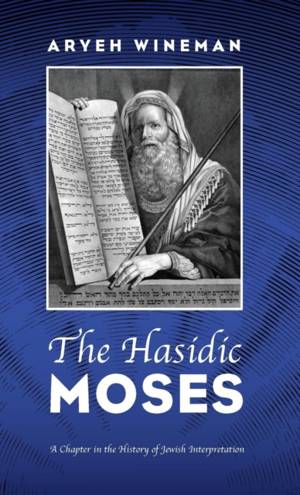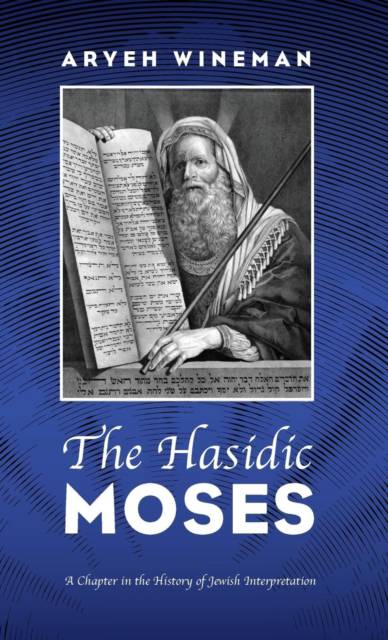
- Afhalen na 1 uur in een winkel met voorraad
- Gratis thuislevering in België vanaf € 30
- Ruim aanbod met 7 miljoen producten
- Afhalen na 1 uur in een winkel met voorraad
- Gratis thuislevering in België vanaf € 30
- Ruim aanbod met 7 miljoen producten
Zoeken
The Hasidic Moses
A Chapter in the History of Jewish Interpretation
Aryeh Wineman
Hardcover | Engels
€ 59,95
+ 119 punten
Uitvoering
Omschrijving
In The Hasidic Moses, Aryeh Wineman invites readers to join him on a journey through various eighteenth- and nineteenth-century Hasidic texts that interpret the life of Moses. Such texts read their own accent on spirituality and innerness along with their conceptions of community and spiritual leadership into the biblical account of Moses. Wineman reveals the ways in which historical Hasidic voices interpreted both the Exodus from Egypt and the scene of Revelation at Sinai as statements concerning what occurs constantly in our lives at all times. In addition, Wineman shows how Hasidic readers embraced the idea that Moses had to die in order that his soul might return to the world in the righteous and holy ones of every generation, and that the presence of Moses actually transcends time and is present in spiritual understanding as it unfolds at any moment in any period.
Specificaties
Betrokkenen
- Auteur(s):
- Uitgeverij:
Inhoud
- Aantal bladzijden:
- 148
- Taal:
- Engels
Eigenschappen
- Productcode (EAN):
- 9781532651359
- Verschijningsdatum:
- 15/02/2019
- Uitvoering:
- Hardcover
- Formaat:
- Genaaid
- Afmetingen:
- 140 mm x 216 mm
- Gewicht:
- 317 g

Alleen bij Standaard Boekhandel
+ 119 punten op je klantenkaart van Standaard Boekhandel
Beoordelingen
We publiceren alleen reviews die voldoen aan de voorwaarden voor reviews. Bekijk onze voorwaarden voor reviews.








